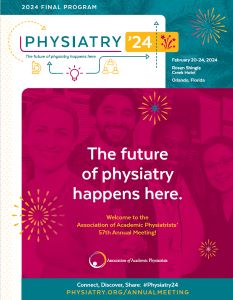TBI
Poster Gallery
1517 - Recovery After Second Traumatic Brain Injury (TBI) with Late-Onset Seizure in an Inpatient Rehabilitation Hospital: Case Report
Thursday, February 22, 2024
5:00 PM - 6:30 PM EDT
- JP
Juliet C. Pena, MD
Resident Physician PGY3
Geisinger
Danville, Pennsylvania, United States - CH
Chun Ho, MD
Attending Physician, PM&R
Geisinger
Danville, Pennsylvania, United States
Presenting Author(s)
Co-Author(s)
Case Diagnosis: Second TBI with late-onset focal motor seizure, right hemiplegia, severe expressive aphasia
Case Description: 30-year-old right-handed, previously independent male with a history of TBI requiring hemicraniectomy 9 years prior and right internal carotid artery occlusion (on Aspirin) presented to an inpatient rehabilitation hospital (IRH) for a second TBI resulting in right hemiplegia and severe expressive aphasia. Prior workup showed multicompartmental intracranial hemorrhage including subdural hematoma, subarachnoid hemorrhage, intraparenchymal hemorrhage, vasogenic edema, and local mass effect without significant shift. Within 24 hours of admission, patient developed intractable nausea and vomiting and was transferred back to the Emergency Department. Repeat CT head showed stable hemorrhage, progressive cerebral edema and mild rightward midline shift. While readmitted to the Neurosurgery service, patient was found to have hyponatremia and new-onset focal motor seizures on day 9 since his injury. Levetiracetam was increased from 500mg to 2g twice daily. Once medically stable, patient was transferred back to IRH. Over 2 weeks of intensive physical/occupational/speech therapy (PT/OT/ST), patient improved significantly.
Discussions: Previous studies show poor prognosis for TBI patients with late-onset seizure, multiple injuries, temporal lobe involvement, age ≥30 and male gender. In this case, the left frontoparietal region was primarily involved. While admitted to IRH, the patient's right hemiplegia improved to antigravity strength in the right upper extremity and 4/5 strength in the right lower extremity, and his aphasia nearly resolved. This case exemplifies remarkable recovery after a second TBI, despite age/gender and late-onset seizure, with intensive inpatient rehabilitation while continuing high-dose antiepileptic. Favorable prognosis could also be attributed to minimal comorbidities.
Conclusions: This case highlights the role of inpatient rehabilitation in TBI recovery, including in patients with second TBI resulting in significant neurological deficits and late-onset seizure. With ongoing outpatient PT/OT/ST, this patient is expected to continue to make even further improvements in strength, cognition, and functional independence.
Case Description: 30-year-old right-handed, previously independent male with a history of TBI requiring hemicraniectomy 9 years prior and right internal carotid artery occlusion (on Aspirin) presented to an inpatient rehabilitation hospital (IRH) for a second TBI resulting in right hemiplegia and severe expressive aphasia. Prior workup showed multicompartmental intracranial hemorrhage including subdural hematoma, subarachnoid hemorrhage, intraparenchymal hemorrhage, vasogenic edema, and local mass effect without significant shift. Within 24 hours of admission, patient developed intractable nausea and vomiting and was transferred back to the Emergency Department. Repeat CT head showed stable hemorrhage, progressive cerebral edema and mild rightward midline shift. While readmitted to the Neurosurgery service, patient was found to have hyponatremia and new-onset focal motor seizures on day 9 since his injury. Levetiracetam was increased from 500mg to 2g twice daily. Once medically stable, patient was transferred back to IRH. Over 2 weeks of intensive physical/occupational/speech therapy (PT/OT/ST), patient improved significantly.
Discussions: Previous studies show poor prognosis for TBI patients with late-onset seizure, multiple injuries, temporal lobe involvement, age ≥30 and male gender. In this case, the left frontoparietal region was primarily involved. While admitted to IRH, the patient's right hemiplegia improved to antigravity strength in the right upper extremity and 4/5 strength in the right lower extremity, and his aphasia nearly resolved. This case exemplifies remarkable recovery after a second TBI, despite age/gender and late-onset seizure, with intensive inpatient rehabilitation while continuing high-dose antiepileptic. Favorable prognosis could also be attributed to minimal comorbidities.
Conclusions: This case highlights the role of inpatient rehabilitation in TBI recovery, including in patients with second TBI resulting in significant neurological deficits and late-onset seizure. With ongoing outpatient PT/OT/ST, this patient is expected to continue to make even further improvements in strength, cognition, and functional independence.

